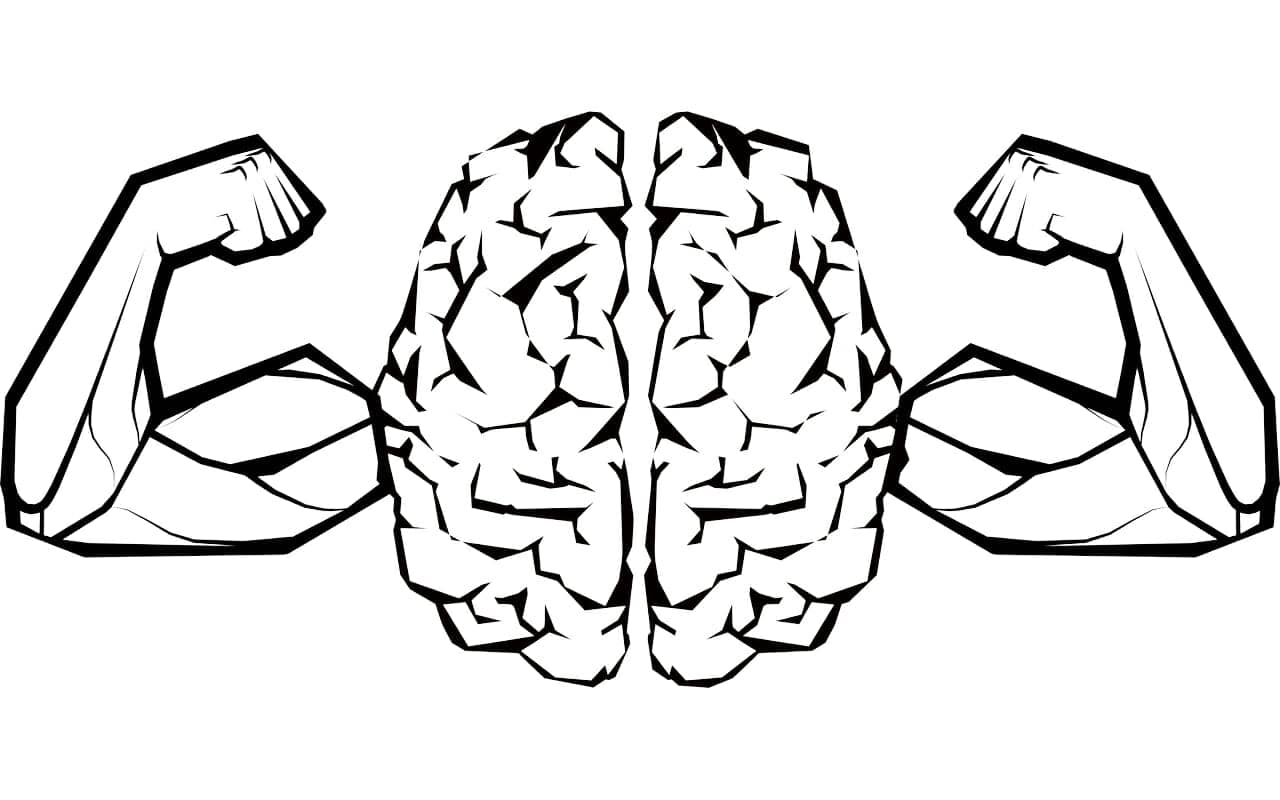Podcast: Download
Subscribe: Apple Podcasts | RSS

They’re confused.
Struggling to pay attention.
Frustrated that they can’t remember details that used to come to mind so easily before suffering their stroke.
Equally troubling are the spouses who email me about their loved ones.
They ask me about brain exercises for stroke recovery.
And they’re generally worried about the future, because we all want to lead rich and fulfilling lives in our old age.
Which won’t be easy or particularly fun without enjoying significant recovery.
Good news.
Life can be rich and fulfilling, even after a stroke.
On this page, you’ll learn all about why memory loss happens after a stroke.
And what can be done to get your precious memory abilities back.
Not only that, you’ve got a chance of having your memory operate even better than before.
Ready?
Let’s dive in.
Does a Stroke Cause Memory Loss? What You Need to Know
Strokes cause memory for a few reasons.
- Brain cells die as a result of the stroke
- Neuronal connections may be severed
- Vascular dementia may develop
- Comorbidity or other health issues may exacerbate the previous reasons
There are other factors that might contribute. For example, researchers have found that previous educational experiences might contribute either positively or negatively.
In other words, if you have a strong education background, you may fare better than someone who has not. Likewise, if you’re bilingual, you may have developed “cognitive reserve” that will work to protect your brain.
To be clear: learning a language or completing a degree might not prevent you from having a stroke. But it can help protect your brain from damage, or bounce back much faster.
Of course, a lot depends on exactly where the stroke has hit the brain. For example, a stroke that affects the prefrontal cortex can diminish your ability to pay attention. This cognitive ability affects memory differently than other types of memory.
Finally, you should know that having a stroke creates stress. Stress is known to reduce your memory abilities.
This means that both the stroke victim and family and community members may be affected.
But the good news is that there is a lot you can do to improve.
Let’s check them out!
How to Improve Memory After a Stroke: 4 Scientifically Proven Methods
The following list is in no particular order of importance.
All of them are good.
And all of them can be done after a stroke to enjoy memory recovery.
But they also can be done beforehand to prevent having problems in the first place. You’ll enjoy fewer memory blocks and greater brain health overall.
One: Movement
Researchers have noted significant memory improvements when stroke patients engage in the 8 brocades of Qigong.
I practice these myself and notice great memory boosts. I recommend Mimi Kuo-Deemer’s Qi Gong and the Tai Chi Axis. It contains easy to understand instructions for each of the movements tested in the brocade study.
Movement also improves sleep, which automatically leads to improved memory.
Two: Vibration Work
If Qigong gets the entire body movement, transcranial direct current stimulation has been shown to improve audioverbal memory in stroke patients.
These devices can be quite expensive, but there are two alternatives you can explore:
- Singing
- Chanting
There are many studies that show the therapeutic value of these activities. My favorite studies come from Dr. Gunter Kreutz and his team because they also show improved mood in their subjects.
In their studies, singing as part of a choir. This outcomes makes sense because being with others also promotes better health.
But it’s how singing and chanting “vibrate” the brain that most strongly correlates with the findings from studies in transcranial current stimulation.
Three: Brain Exercises
There are all kinds of apps selling “brain exercise” subscriptions. According to Dr. Christine Till and many others, the claims they make are mostly dubious.
So what counts as simple routines that do work?
First, you need brain exercises that follow the mental workout rules shared here. These include new learning, which as we saw above, helps people avoid memory loss from strokes in the first place.
Second, if you want to clear brain fog after a stroke, you need a brain exercise that is designed for such outcomes. Neurobic exercises provide excellent routines for that.
I’ll give you a few specific brain exercises a little further down this page. But first, let’s talk more specifically about what you can do to recover your memory moving forward.
Four: Memory Exercises
Memory exercises differ from brain exercises. Whereas brain exercises train our focus and attention, memory exercises are all about improving recall.
One of the best things you can do is deliberately remember information. You can engage in activities like:
- Remembering some of pi
- Committing vocabulary to memory
- Deeply absorbing scripture
- Learning a language
To make all of these activities much more fun and easy, I suggest you learn how to use a Memory Palace. It’s a simple mental tool that uses association to help you learn new things faster.
These Brain Exercises for Stroke Recovery Will Help You Restore Your Memory
Now that you know of the key activities you can explore for better memory, let me share a few quick brain exercises with you.
Give each a try and journal your results along the way.
Writing out your experiences and keeping a recovery diary is the best way to note what works. That way, you know what to do more of and what you can replace.
Number Skipping
When it comes to improving the ability to pay attention that so that you can remember incoming information, this exercise is key.
To get started, get from one to ten, but not exactly.
Skip representing the even numbers.
In other words, count “one” out loud, but when you get to the “space” you would normally count “two,” suppress it.
For many people, this will be hard. It’s like saying to someone, “Don’t think of a red cat.” Your mind has to do it in order to obey the command.
But with practice, you can assign space in your mind for numbers without representing them.
I know this exercise is abstract, so please watch the video version so you can learn it as thoroughly as possible.
Kirtan Kriya
You can reduce stress at the same time you boost memory and comprehension.
This simple brain exercise involves reciting simple syllables as you work with your fingers.
Here’s an excellent video tutorial on the practice from Dr. Gary Weber:
If you want a more advanced version of this exercise, try combining it with number skipping.
Memory Training
We’ve already discussed a few ways you can train your memory.
But did you know you can also engage in it as a sport?
ACTIVE is the longest study we have, and although it doesn’t involve memory sports as such, it involved using the same mnemonic images memory athletes use.
People who trained with this form of association showed better abilities to navigate life. This included their ability to reason effectively. In other words, by memorizing something each day, the kept their critical thinking skills intact.
Complete Physical Puzzles
Did you know that science shows completing jigsaw puzzles helps your mind age better?
This is likely due to the benefits of haptic memory exercise, literally the mental exercise you get from using your hands. It could have to do with combining the visual and physical experience of assembling a picture in a way that engages Weber’s law.
One study implies that it would be very good if we all continue to complete physical puzzles as kids, rather than playing too much on devices that create digital amnesia. Basically, the study suggests that you’ll do even better with these kinds of activities if you have prior experience with them.
But anyone can benefit, so get yourself a puzzle and start solving it.
Become An Expert And Maintain Your Expertise
As we’ve seen, it pays to be prepared in the event of a stroke.
But even if you’re recovering, you can work on developing expertise in a topic and then benefit from maintaining your knowledge.
As Timothy Salthouse has found, there is truth to the “Use It or Lose It” hypothesis.
It’s never too late to develop even just a small amount of expertise in areas like:
- Chess
- Music
- The arts
- Law
- History
- Literature
- Politics
- Philosophy
In all cases, the trick is to get sufficient amounts of deliberate practice.
Can Strokes Affect Memory?
In a word, yes.
But so can many other things, both positively or negatively.
So whether you’re working on your recovery now, helping someone who is, or hoping to avoid issues altogether, the time to get started with the activities on this page is now.
The best part is that all of the brain exercises and accelerated learning techniques you’ve discovered today are easy and fun.
So what do you say?
Are you ready to give your stroke the boot and enjoy amplifying your memory?
If so, why not give my FREE Memory Improvement Kit a try?
It will help you develop those Memory Palaces I was telling you about above.
And they’re useful for working on the vocabulary memorization exercises that have been scientifically shown to help people live fulfilling lives, even after experiencing a stroke.
If you have any questions, just let me know and I’ll get back to you a.s.a.p.
Related Posts
- 5 Memory Palace Examples To Improve Your Memory Training Practice
Here are 5 Memory Palace examples that will improve your memory training practice quickly, even…
- Memory Athlete Braden Adams On The Benefits Of Memory Competition
Braden Adams is one of the most impressive memory athletes of recent times. Learn to…
- Can You Trust Memory Vitamins To Boost Your Brain?
Are memory vitamins the secret to sharper memory? Read the truth about these vitamins, and…








